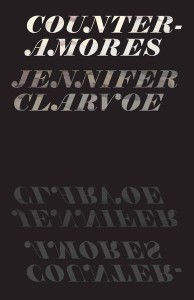
After the lecture for the Forms of Love 1st year core course, Jennifer Clarvoe came back on January 24th, to give a public reading of her works.
What our professor David Hayes announced in the beginning of his laudatio took me by surprise: it was the first ever proper poetry reading at ECLA. I had had the feeling that, to cite our professor, “poetry has been around” (and I was thinking, what about his hosting of a poetry night every autumn).
Be that as it may, the lecture hall hadn’t been poetically consecrated. It was about to be, and with good, true poetry. Let me explain this in less poetic terms.
A good poetry reading does not need good poetry only. The poet also has to become an actress, in a performance in which she is playing herself (an older self, of this or that poem); sometimes the poet does not sound like her own poems; some poets just cannot read their own text.
In this sense, Clarvoe has a risky but in the end successful tactic: not only was she performing her poetry (the older selves), but also playing the poet, disclosing this or that secret about the making of the texts. How much should personal experience enter the verse, whether overtly or (mostly) covertly? How does poetry express these experiences? This issue was, not only for those of us who write poetry, as interesting as the works.
To David Hayes, who connects his experience of Clarvoe’s poetry to an image of a baseball game on the folder she had at the reading he attended, not only are things, “thrown at her” but she, unlike other poets, negates passivity and really ‘plays’ the game, here and now.
Clarvoe’s poetry itself is very self-referential and often sets out to answer these questions. Throughout her first and second books (Invisible Tender and Counter-amores, respectively), the poetic self is both an observer, perceiving the landscapes (not just in a physical sense, but because a sense of linguistic exploration is added) and an answerer.
I wouldn’t be exaggerating if I said that to answer became the leitmotif of the evening. Clarvoe anticipated her reading by reciting Robert Frost’s The most of it, which gives the motto to her second book: “He would cry out on life, that what it wants/ Is not its own love back in copy speech/ But counter–love, original response.”
This answering mode is perhaps best expressed in Counter-amores, which Clarvoe wrote in response to Ovid’s poems the Amores. However, the poems of Counter-amores do not follow the path of mirroring or simply citing Ovid, rather the poems, “are meant to stand on their own,” the author says in her notes to describe the cycle. As if such confirmation was necessary, someone told me, soon after the reading, that he felt the power of the Counter-amores, having not read Ovid.
But how immediate is the poet’s answer? Study of the English-Turkish dictionary later (possibly, after years of maceration) evolves into a poem, in which the eight meanings of the Turkish word for ‘thirst’ are translated into different aspects of a surreal, existential landscape.
In another poem “Counter-amores 1.1” the Italian song Bella, ciao connects to Virgil’s “bella, horrida bella” [wars, horrible wars], and describes a passionate moment in the middle of a protest, in the heart of Italy, where “the bells rang ‘la bella vita’ into the Roman air,” against the war in Iraq. These are a couple of examples that point to how the ‘game’ functions: it is catching the objects thrown, arranging them on an infinite shelf, from where they will be extracted, if, and only when, they will be required to create aconstellation.
But it is also to follow the trajectories in the air, trying to recreate the lines they describe and interweaving those lines. In this game the winner is he or she for whom there is no longer a difference between objects and words.
by Aurelia Cojocaru (2nd year BA, Moldova)
